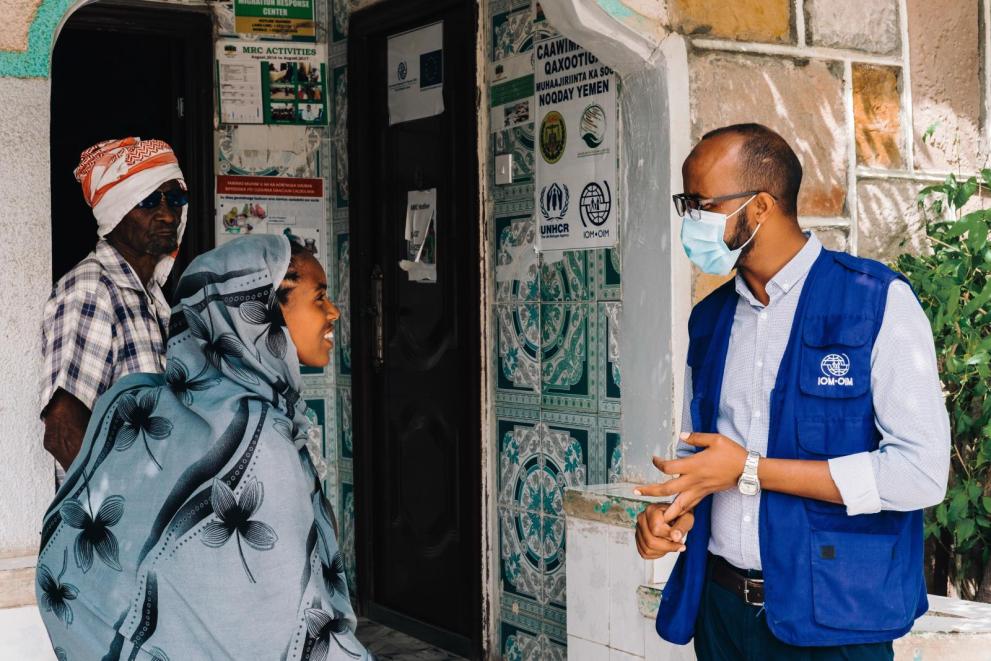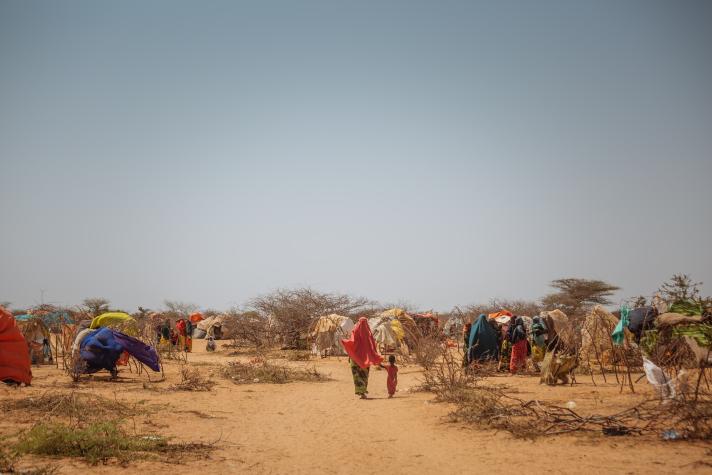
On 22 February, the Mixed Migration Taskforce (MMTF) in Somaliland launched its extensive strategy for the next 3 years (2022-2025), with the aim at improving migration management and enhancing the coordination among stakeholders to respond to migration flows. The strategy has been supported by the Better Migration Management (BMM II) Programme funded by the European Union and Germany.
Somalia, a country of origin, transit and destination
Somalia’s location on the ‘Eastern Migration Route’ contributes to bidirectional flows between the Horn of Africa and the Arabic Peninsula. It is a country of origin, transit and destination for migration.
The country is dealing with a huge number of movements. In December 2021 alone, the International Organization for Migration (IOM) observed 23,779 movements of migrants of whom 58% were outgoing and 42% incoming.
Many of the migrants transit through Somaliland and cross the Gulf of Aden. Due to irregular and not adequately monitored migration, they are exposed to threats such as human trafficking.
A strategy towards safe and orderly migration
The Mixed Migration Taskforce is already very active in migration management. In 2019, it established a national referral process to improve the identification, protection and provision of assistance to vulnerable migrants, including children and victims of trafficking.
The new MMTF strategy includes concrete goals such as the development and revision of migration laws and existing policies to enhance the management and protection of migrants, victims of trafficking, refugees and returnees. International standards and a human rights-based approach will inform the development of immigration and border processes.
‘The strategic plan will enable us to understand our current situation and what has to be done in the next 3 years in relation to migration governance in Somaliland’, says Abdirahman Abdallahi Ismail Saylici, Vice-President of Somaliland.
The MMTF strategy foresees the collection of reliable data on mixed migration to identify trends and capacity needs in migration management. This will enable a timely response to the anticipated increase in incoming victims of trafficking.
Background:
Established in 2007, the MMTF has become a platform of considerable influence to improve migration governance. Consisting of representatives from different ministries and institutions dealing with migration, it guides and coordinates the engagement of the Somaliland authorities in developing comprehensive operational responses to mixed migration flows.
The Better Migration Management (BMM) programme funded by the EU Trust Fund for Africa and the German Federal Ministry for Economic Cooperation and Development (BMZ) is supporting the MMTF to strengthen its role as a coordination platform and to implement its strategy including capacity building and advisory to develop and revise national policies and legislation. Furthermore, BMM is supporting the MMTF in developing referral guidelines to clarify roles in identifying, protecting and assisting vulnerable migrants and victims of trafficking.
Details
- Publication date
- 3 March 2022
- Region and Country
- Horn of Africa
- Somalia
- Thematic
- Improved migration management
- Partner
- GIZ

